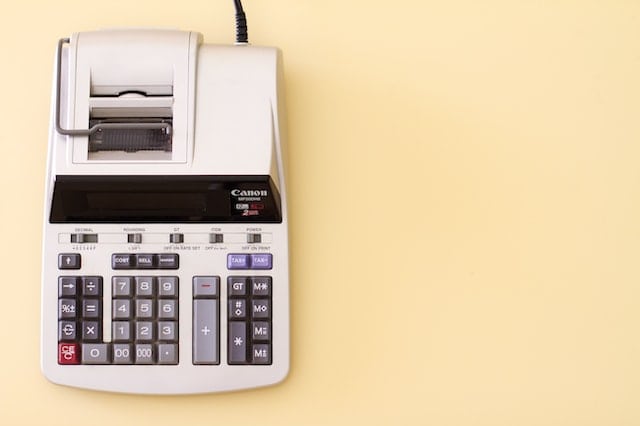Table of Contents
So, you’ve decided to set up your business in Hong Kong. What’s not to love about it? With its proximity to the mainland Chinese market and strong government support for innovation, it has emerged as one of the preferred locations for a number of global enterprises. You’ve gone through all the basic paperwork and you’re wondering what’s next for Setting Up A Company in Hong Kong. Taxes are the answer. A daunting task for some, this guide will take you through the important corporate tax regime in Hong Kong.

It might ease your mind a little to first know that Hong Kong generally has a highly attractive hong kong tax regime like profit tax stamp duty in Hong Kong , with low personal and corporate tax rates. In this post, we’ve broken down the essential Hong Kong taxes you have to take note of as you go about establishing your business in Hong Kong.
What is the corporate tax rate in Hong Kong?
The straightforward answer to this is 16.5% on all assessable profits made by a company annually. However, there are different tiers and classifications of tax rates that businesses owners should be aware of! Read on to find out more.
What corporate taxes must I pay as a business owner in Hong Kong?
Companies have to pay what is known as profit tax in Hong Kong at a rate of 16.5% of their assessable profits. Such a corporate tax rate in Hong kong is considered low when compared against other economic powerhouses in. In Japan for example, the corporate tax rate is 31%, and in South Korea, it is 22%.
In addition to this, companies do not have to pay capital gains tax. Jargon aside, this can be plainly understood to mean a taxation on gains your business makes from the sale of stocks, bonds, precious metals and property, amongst other assets.
Furthermore, businesses do not have to pay value added taxes, or sales taxes. There is also no withholding tax on dividends and interest that are imposed on companies, and no collection of social security benefits. What this means is that dividends from local companies chargeable to tax are exempt from these. On the other hand, it should also be noted that dividends from overseas companies are generally offshore in nature and not subject to tax in Hong Kong.
Who is liable for paying Profits Tax in Hong Kong?
According to the Inland Revenue Ordinance (IRO), a person is liable to pay Hong Kong Profits Tax if the following conditions are met:
- He carries on a trade, profession or business in Hong Kong;
- The trade, profession or business derives profits; and
- The profits arise in or are derived from Hong Kong.
With regard to the last requirement, what is essential to note is that taxation in Hong Kong is based on the territorial source principle. For the uninitiated, this means that companies registered in Hong Kong will only be liable to pay taxes on profits that come from within Hong Kong. It does not have to fork out taxes on profits sourced from outside of Hong Kong.
How do I determine what profits are taxable?
Companies are taxed based on their Assessable Profits, which are the net profits (or loss) [other than profits (or loss) arising from the sale of capital assets] for the basis period, arising in or derived from Hong Kong.
The following sums are excluded from the Assessable Profits:-
- Dividends received from a corporation which is subject to Hong Kong Profits Tax;
- Amounts already included in the assessable profits of other persons chargeable to Profits Tax;
- Interest on Tax Reserve Certificates;
- Interest on, and any profit made in respect of a bond issued under the Loans Ordinance (Cap. 61) or the Loans (Government Bonds) Ordinance (Cap. 64), or in respect of an Exchange Fund debt instrument or in respect of a Hong Kong dollar-denominated multilateral agency debt instrument;
- Interest income and trading profits derived from long term debt instruments; and
- Sums received or accrued in respect of a specified investment scheme by or to the person as:
-
- a person chargeable to Profits Tax in respect of a mutual fund, unit trust or similar investment scheme that is authorized as a collective investment scheme under section 104 of the Securities and Futures Ordinance (Cap. 571); or
- a person chargeable to Profits Tax in respect of a mutual fund, unit trust or similar investment scheme where the Commissioner is satisfied that the mutual fund, unit trust or investment scheme is a bona fide widely held investment scheme which complies with the requirements of a supervisory authority within an acceptable regulatory regime.
When is the filing of Profits Tax returns due?
You must file a different Profits Tax Return to the Inland Revenue Department (IRD) depending on the type of business you operate:
- Corporations (BIR51)
- Persons Other Than Corporations (BIR52)
- In Respect Of Non-Resident Persons (BIR54)
Generally, profits tax return should be filed within 1 month from the date of issue. The compliance date of submission is specified on the first page of the Profits Tax Return. The deadline may be extended by 2 weeks if your business is using Electronic Filing.
Learn about the Profits Tax Return due dates.
If you fail to lodge a tax return by the due date or the extended due date, estimated assessment will be issued and you may be required to pay more tax. You may also be subject to penalty proceedings which include payment of penalty, or even prosecuted.
Taxes for Individuals
It is also important to take note of the tax rates for individuals in Hong Kong. This would be important knowledge for both you and your potential employees to be aware of in brief.
The table below effectively sums up the various levels of tax you will have to pay, based on your income bracket.
| Income (in HKD currency) | Tax rate |
| 1 – 40,000 HKD | 2% |
| 40,001 – 80,000 HKD | 7% |
| 80,001 – 120,000 HKD | 12% |
| Above 120,000 HKD | 17% |
| Tax rate on capital gains | 0% |
| Tax rate on income earned overseas | 0% |
| Tax rate on dividends from a Hong Kong company |
Again, compared to other parts of the world and the Asia Pacific, Hong Kong’s personal income stands at a comparatively low percentage. This makes it even easier for you to build a team, and manage your finances as an employer.
What are tax payment methods in Hong Kong?
There are lot of option for paying tax in Hong Kong.
Payment in Person:
Besides paying by post or via electronic means, you can also pay tax, Business Registration Fee and Stamp Duty or purchase Tax Reserve Certificates in person at the collection different points. check out collecting points here.
Payment by Post:
When paying tax, Business Registration Fee, Stamp Duty, and purchasing Tax Reserve Certificates (TRCs) by post, you must ensure sufficient mailing time and postage to make delivery in order. You should not not send in cash or post-dated cheque. Underpaid mail will be rejected. Know more.
Payment by Telephone, Internet or Bank ATM
It is safe and convenient to pay by electronic means. You can pay your tax, Business Registration Fees, Stamp Duty or purchase Tax Reserve Certificates (TRCs) by telephone, Internet or bank Automatic Teller Machine (ATM). Know more.
The Electronic Tax Reserve Certificates Scheme
The Electronic TRCs Scheme is a “Save for Tax” scheme open to all taxpayers to assist them to build up funds for tax payment. It provides TRC users with a full range of electronic services, including purchase through various electronic channels (monthly bank autopay, telephone, internet and bank automated teller machine) and an auto tax payment service . Know more.
Payment from Overseas
In this case you can pay with and without bank account.
If you have a bank account in Hong Kong, you may pay tax through this bank account by either by cross cheque or by internet. You may send in a crossed cheque of your bank account in Hong Kong (payable to “The Government of the HKSAR”) to pay a tax bill. you should write down on the back of the cheque the tax file number and Shroff Account Number of the tax bill.
if you do not have bank accounts in Hong Kong, you may pay tax by Bank Draft, Crossed Cheque in Overseas Bank Account, Arrange Payment in Hong Kong through Related Party or Telegraphic Transfer. Know more.
Consequences of Not Paying Tax On Time
Ordinance shall be paid in the manner directed in the notice of assessment on or before a date specified in such notice. Any tax not so paid shall be deemed to be in default.
If the first instalment is not paid by the date specified on the notice of assessment, the second instalment will become immediately due. The entire balance of the total tax payable in the notice of assessment remaining unpaid shall be deemed to be in default and will be immediately recoverable.
The Commissioner of Inland Revenue will initiate recovery actions [including imposition of 5% surcharge on the entire balance of the demand notice, issue of recovery notice to third party and initiation of legal action, etc] as authorized by Part XII of the Inland Revenue Ordinance for recovering the total outstanding amount.
Summing Up
In sum, taxation is a fairly forgiving affair in Hong Kong for businesses. With low corporate and personal tax rates, it comes as no surprise that it remains as one of the top locations to do business in the Asia Pacific.
This aside, you should also be careful to note that corporate tax is not the only applicable tax for companies in Hong Kong. Other taxes that are typically levied on companies such as property tax and the stamp duty still apply.
Learn about stamp duty in Hong Kong.
Start managing your legal needs with Zegal today
READ MORE: Company Incorporation Hong Kong: Foreigner’s Essential Guide
Alex Tanglao
Alex Tanglao is a seasoned professional with expertise in startups, legal technology, and business management. Alex has held leadership roles, including Director of Strategy & Operations at Elevate Digital, where he streamlined operations and managed teams, and Director of Ecommerce at Allies of Skin, driving global growth. Alex served as Marketing Manager at Zegal, driving legaltech and educating businesses on startup legal topics. With a background in content strategy from LawPath, Alex combines a deep understanding of legal services with operational excellence and innovative marketing strategies to help businesses thrive in dynamic, fast-paced environments.







